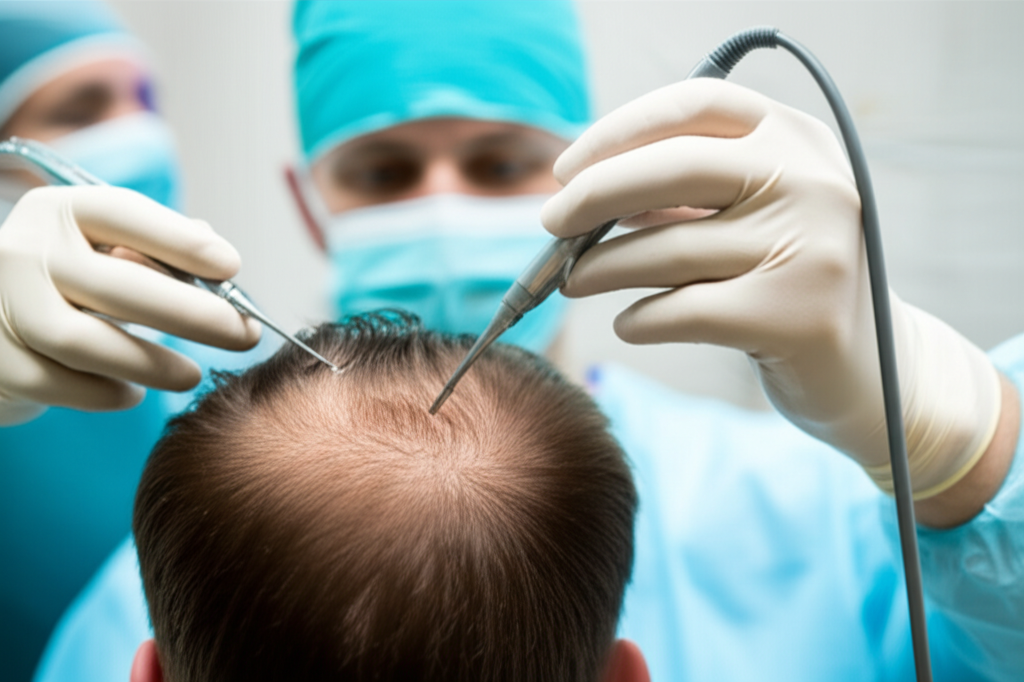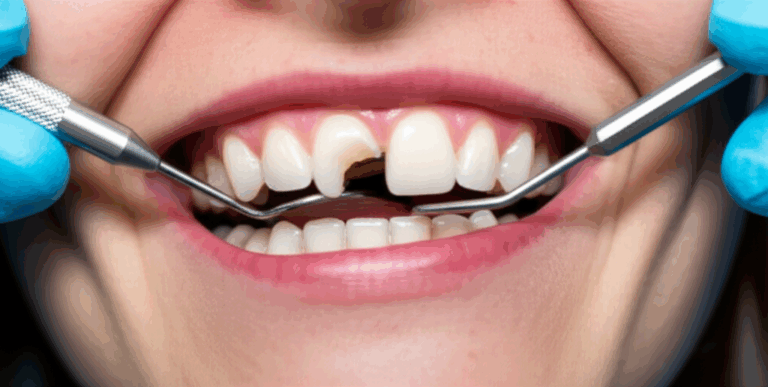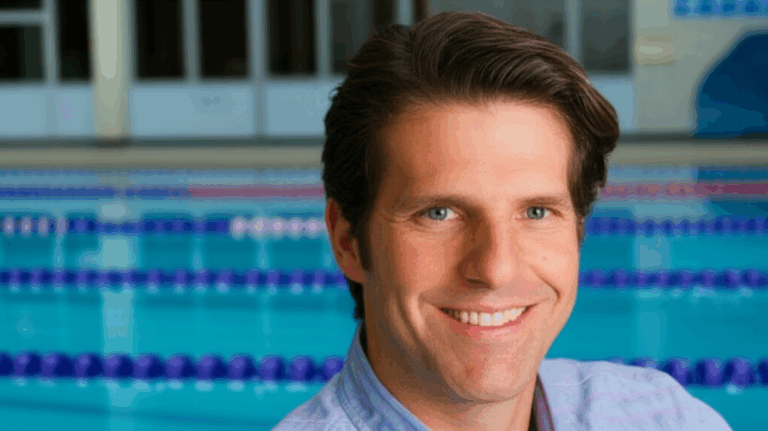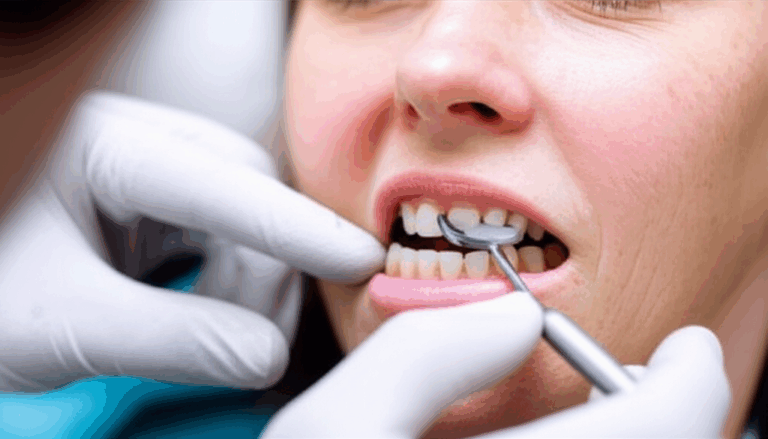
Can a Dentist Do a Hair Transplant? Understanding Qualifications, Risks, and Who to Trust
We all want to look our best—especially when it comes to our hair. If you’re looking into hair restoration, you’ve probably seen that promises for solutions seem to pop up everywhere. Naturally, you might wonder: Can a dentist do a hair transplant? Or maybe more importantly, should a dentist do this kind of surgery?
If you feel a bit lost about who’s really trained to move hair from one part of your scalp to another, you’re not alone. With all the stories about bad cosmetic surgery outcomes, it’s smart to double-check anyone’s qualifications before you trust them with your look—or your health.
This guide aims to clear things up and help you understand what to look for when picking a hair transplant doctor. Let’s go through the important facts together.
In This Article
- What Does a Dentist Really Do?
- The Basics of Hair Transplantation
- Who Should Do Hair Transplants? Training & Qualifications
- Can Dentists Legally Do Hair Transplants?
- Risks With Untrained Providers
- How to Pick a Good Hair Transplant Doctor
- Questions to Ask Your Provider
- Bottom Line: Safe & Smart Hair Transplant Choices
What Does a Dentist Really Do?
Let’s start with the basics of what a dentist is trained for. While both dentists and doctors might wear scrubs and use sharp tools, their jobs are pretty different.
Dentists: Experts for Teeth and Mouth
Dentists study for years to look after your teeth, gums, jaws, and the parts of your face that help you bite, chew, and smile. They can fill cavities, pull teeth, add dental implants, and sometimes do cosmetic treatments like whitening or braces.
But—and this matters—their training is almost all about your mouth and jaw area. Their focus is the stuff you need to eat, talk, and smile.
Special Dental Roles: How Far Do They Go?
There are dentists called oral and maxillofacial surgeons. They don’t just fix teeth—they might treat facial injuries, remove wisdom teeth, or put in dental implants. But even these surgeons usually work only inside the mouth, jaw, and maybe some nearby face areas—not the scalp.
> Quick Example: It’s kind of like how both a plumber and an electrician fix things in your house. But you’d never call an electrician to repair your pipes, even though both carry tools. Both are skilled, but not for the same jobs.
Short story: Dentists are top experts for teeth and parts of the lower face, but surgery on the scalp—like hair transplants—is something else.
The Basics of Hair Transplantation
You might have seen pictures online where little hairs are moved from one part of the head to another. It looks simple. But there’s a lot more to it.
What Happens in a Hair Transplant?
Hair transplants—like FUE (Follicular Unit Extraction) or FUT (Follicular Unit Transplantation)—need both careful surgery and a good eye for looks. Here’s a simple breakdown:
- Donor Area: Usually, the back or sides of your head where hair is more likely to stick around.
- Recipient Area: The parts where you want more hair.
- The Surgery: Small groups of hair are removed, then placed in new spots carefully so they look natural. This takes real skill.
What the Doctor Needs to Know
A good hair transplant doctor has to:
- Know the blood flow and nerves in your scalp
- Understand how and why hair grows and falls out
- Have strong surgery skills, including pain management and keeping things clean
- Know how to design a natural-looking hairline
A hair transplant is a real surgery. Like any surgery, there are real risks if it isn’t done right.
Who Should Do Hair Transplants? Training & Qualifications
So, who can actually do hair transplants safely and properly? Here’s the simple answer:
The Right Kind of Surgeons
Hair transplants are usually done by:
- Dermatologists: Doctors who know all about skin, hair, and scalp health
- Plastic Surgeons: Doctors trained to do cosmetic and shaping surgeries
- General Surgeons (with extra hair training): Some general surgeons take extra courses to learn hair surgery
Important: All of these people are medical doctors (MDs or DOs), trained in surgery, and often members of groups like the International Society of Hair Restoration Surgery (ISHRS) or the American Board of Hair Restoration Surgery (ABHRS).
Why the Right Training Is Important
Let’s use another example. Imagine you need a new car engine. Would you go to someone who only changes tires? Even though they know a lot about cars, engines are another level. With your health—and your looks—the risks are higher if you pick someone not fully trained.
If someone who’s not really trained for this does your surgery, you could end up with:
- Infection
- Bad-looking results
- Nerve injuries
- Scars that won’t go away
So, should a dentist do your hair transplant? Pretty much every health group says no.
Can Dentists Legally Do Hair Transplants?
It seems clear enough—but the rules aren’t always easy to understand.
How the Law and Rules Work
Scope of Practice: Dentists, even skilled surgeons, can only do procedures they have trained and have licenses for. These rules are set by groups like the American Dental Association (ADA), the British General Dental Council (GDC), or the organizations in their own countries.
Are There Any “Gray Areas”?
In some places, the law clearly says no. In others, it’s not directly stated—but dental or medical boards can still punish dentists for breaking the rules.
- Malpractice Risks: If a dentist does a hair transplant and things go wrong, the patient could get hurt and the dentist could lose their license or end up in court.
- Ethics: Dental and doctor groups are usually very against people doing treatments they’re not trained for.
Why Would a Dentist Ever Do a Hair Transplant?
In spots where rules are loose, where people travel for cheap surgery, or where some clinics care more about money than rules, dentists or other untrained people sometimes try to do these surgeries. Patients may not know the person isn’t properly trained.
Risks With Untrained Providers
Now, let’s look at what can actually go wrong if your hair transplant isn’t done by someone with the right skills:
Bad Looks
- Odd Hairlines: If someone doesn’t know the right way to set and aim hair, it can look weird or very un-natural.
- Not Enough Hair or “Pluggy” Look: Without skill, results can be thin, patchy, or obvious as fake.
- Scarring: If the doctor isn’t careful, both the spot they took the hair from and the spot where they put it can scar badly.
Health Problems
- Infection: Any surgery spot can let in germs if it’s not kept clean. Some studies say infection rates can be as much as 15% with untrained providers.
- Swelling and Bleeding: Bad techniques can hurt healthy tissue.
- Nerve Damage: Poor skills can hurt nerves, leaving you with numbness or pain.
- Tissue Death: Bad technique can destroy blood flow, and scalp patches might die and turn into wounds.
- Problems With Anesthesia: Only medically trained people should give out and watch over pain medicine.
Poor Aftercare
Follow-up after the surgery is very important. Places that use untrained people might ignore you as soon as you pay, leaving you to deal with any problems alone.
The Cost of Fixing It
Groups like ISHRS say that up to 30% of people who go to unqualified providers wind up needing expensive “fix-it” surgeries afterwards.
> Think about it: Imagine you want fuller hair and end up needing multiple repair surgeries, paying even more, and maybe looking worse than before.
How to Pick a Good Hair Transplant Doctor
Here’s how you find someone you can trust for your hair.
What to Watch For
1. Medical Qualifications
- Must have an MD, DO, or similar medical degree
- Finished special training in skin or cosmetic surgery
2. Board Certification
- Certified by groups like the American Board of Hair Restoration Surgery (ABHRS)
- Member of groups like the International Society of Hair Restoration Surgery (ISHRS)
3. Extra Training in Hair Surgery
- Not all skin or cosmetic doctors know hair surgery. Ask if they did extra lessons or training.
4. Lots of Experience
- Real before-and-after pictures (not stock photos)
- Real patient feedback
- Years of experience and number of surgeries
5. Trained Staff and Good Clinic
- The people helping should be well trained
- The place should be clean, safe, and ready for emergencies
6. Clear Consultations
- Your first talk should feel honest and open, not rushed or “salesy.” You should hear about risks and other choices, and the doctor should help you see what’s possible.
7. Safety and Ethics First
- Ask how they handle cleanliness, pain, and follow-up care. Be careful if they promise “no pain” or “super fast” results.
What About Price?
A good, safe surgery can be expensive. It’s tempting to pick someone cheaper. But with surgery, cheap often means risky—and fixing mistakes takes even more money later.
Questions to Ask Your Provider
Jot these down for your doctor visit:
If you don’t feel their answers are clear, keep searching.
Bottom Line: Safe & Smart Hair Transplant Choices
Here’s what to remember—save this as your “hair transplant cheat sheet:”
Key Points
- Hair transplants are real, careful surgery—needing special training and an artistic eye.
- Dentists, even if trained in some face surgeries, do not have the training or legal ok to do scalp hair transplants.
- Don’t risk your health or your self-image on a bargain surgery by the wrong hands.
- Your best shot is with doctors (MDs/DOs) who are certified in skin or cosmetic surgery and also trained in hair restoration.
- Ask a lot of questions, double-check their background, and make sure they’re open and honest about what they offer. You deserve the best for both your health and your confidence.
What to Do Next
- Book a meeting with a board-certified hair surgeon.
- Look up real patient reviews and before/after pictures.
- Ask about all options—sometimes, medicines or things like PRP (platelet-rich plasma) may help.
- If you’re still unsure, your regular doctor or dermatologist can point you to a trusted specialist.
Great hair—and good health—is definitely worth doing right.
If you want to learn about special dental work, like dental implants or veneers, you can check out details from a crown and bridge lab or veneer lab. If you have questions about dental problems, it’s always smart to contact a dentist with the right qualifications.
Frequently Asked Questions
1. Can a dentist legally do a hair transplant?
In almost every country and state, hair transplants are not allowed for regular dentists. Even oral and maxillofacial surgeons usually don’t have training for scalp surgery. Only licensed, properly trained doctors can do these surgeries safely and legally.
2. Why would a dentist offer to do my hair transplant?
In rare cases, dentists work in loosely-run clinics or in places where rules aren’t strict. Sometimes, clinics might not tell you clearly who’s really doing the surgery. Always insist on meeting your main surgeon and checking their credentials.
3. What could go wrong with an untrained hair transplant provider?
Risks include infections, scars, permanent numbness, strange-looking hairlines, and regret. It’s usually more complex and expensive to fix a bad transplant than to do it right first.
4. Can my usual dentist send me to a good hair transplant doctor?
Yes! A caring dentist will want you to get safe, quality treatment. If you ask, they can help you find safe and well-trained doctors.
Your Healthy Takeaway
Going for hair restoration is a big step—it’s about getting back your confidence and feeling like yourself. Make this choice with clear, simple information and always pick a doctor who is trained and trusted.
If you have more questions or want to talk teeth, don’t wait to reach out to a dentist or check out proven dental labs for more on quality dental care. Your health—and your smile—deserves the best.
Sources: ISHRS, ADA, American Board of Hair Restoration Surgery, World Health Organization, and other trustworthy medical resources. This article is here to give you clear and honest info. For personal advice, always talk to a doctor or licensed health professional.








